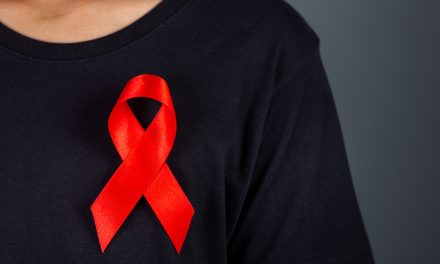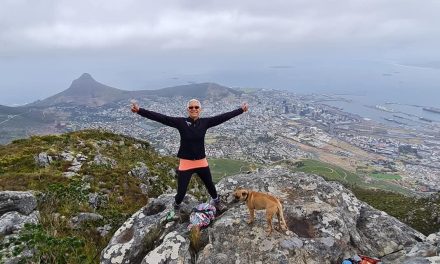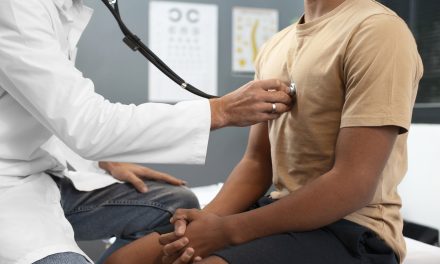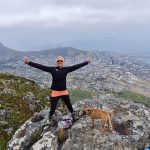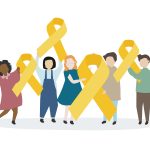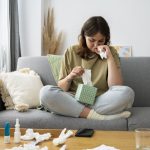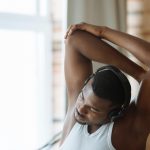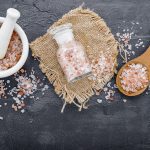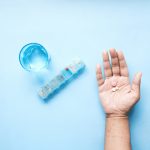From unexplained symptoms to diagnosis and resilience, this is how Dr. Zozibini navigated ulcerative colitis while training to become a doctor
It started with a bit of blood in her stool; something Dr. Zozibini Ayanda Mhlaba, then a first-year medical student, tried to brush off. But soon cramps kicked in, and the symptoms couldn’t be ignored. What followed was a life-changing diagnosis: ulcerative colitis. Now a medical doctor in Cape Town, she’s sharing her story to help others spot the signs early, and to show that strength isn’t always about pushing through in silence.
Take us back to when you first noticed something was wrong? What was it like balancing your medical training with the mysterious symptoms you were experiencing?
It was my first year of medical school when I was diagnosed with ulcerative colitis (UC). I first noticed a bit of blood in my stool but ignored it, thinking I was just constipated or had a tear –maybe something I ate. When the blood came back a few days later, I got worried, but didn’t tell anyone. It was close to March break, I wasn’t in pain, and I was too stressed about exams to deal with it.
After writing my tests, I got on a bus to go home. On the way, I started getting cramps, my stool was runny, and there was a lot more blood. I thought maybe it was just something I ate while travelling. At home, I finally told my mom –well, I called her to the bathroom and showed her. The look on her face! When I told her it had been going on for weeks, she was upset I hadn’t said anything sooner. She immediately booked me in to see our local doctor.
At the appointment, the doctor suspected UC. I just wanted to know if antibiotics would fix it and if it would go away. She said she wasn’t certain and that we’d need to run tests, which could only be done in East London, 300km away. While waiting for results, she suggested seeing someone in Cape Town when I returned to school. The only doctor we knew was a surgeon who had operated on my sister. He referred us to his friend, but that doctor was on leave, so we ended up with my current gastroenterologist. That’s how I was officially diagnosed.
I was shocked. I’d never heard of UC, so I Googled it – bad idea. All I saw was colon cancer, and that terrified me. It took me a while to open up to friends about constantly needing the toilet or sitting near the door in lectures. Balancing this new diagnosis with the pressure of med school was incredibly hard. I went through a phase of blaming myself and struggled to ask my doctor questions because I didn’t even know what to ask. But with time, things got a bit easier.
How did you learn to cope with the fear and uncertainty each day?
Once I opened up to my friends it became easier. They would sit with me to make sure I was as close as possible to the toilet. They checked up on me at res and helped me catch up with schoolwork if I missed classes or any tasks. They also helped with keeping my stress levels down and making sure I took my medication. Acceptance of my diagnosis was a very important part of dealing with each day. I had to accept that each day would be different and that I just needed to conquer one day at a time.

What strategies have you developed for managing your condition when you’re away from home?
When I’m in remission, I feel like everyone else and don’t think much about my condition, except when taking my meds. Flare-ups are the hardest. I get anxious about being far from a toilet, especially at work or social events. Letting my seniors know about my condition helped ease that anxiety at work. I often avoid social events to escape having to explain my bathroom visits. Travel used to be a big stressor, especially 18-hour bus rides home. My parents made sure the bus had a toilet, even though I felt awkward using it. Flying helped, but I still had to plan carefully, eating little, and emptying my bowel before boarding.
Visiting my grandparents was even harder due to the lack of flushing toilets. Once, during a flare, they gave me a bucket to use at night instead of walking to the pit toilet in the dark. I’ve missed many family gatherings because of inaccessible toilets. Steroids also changed my appearance – especially my face – leading to comments that made me withdraw from social and church events. Now, I’m better at explaining and educating others, realising many people just don’t understand.
During my internship in the Eastern Cape, flare-ups were brutal. There was often no running water, and I had to use pit toilets, which made hygiene difficult. I missed work at times and felt ineffective and isolated, especially when people made comments about how I looked.
When you’ve had to change medications, what have been the biggest mental and physical adjustments?
Thinking about my medication journey always brings tears; it’s been a true rollercoaster. My doctor jokes that my UC didn’t read the textbooks, because I often respond well to new treatments at first, only to lose response over time, even to drugs that were supposed to work long-term.
The hardest mental shift has been holding on to hope every time we change regimens. The fear of flare-ups and losing response again is always there. My last flare, at the end of last year, was my longest and most emotionally draining. Steroids helped, but the side-effects: weight gain, “moon face,” insomnia, heartburn, nerve pain – took a big toll. I got through it with the love and encouragement of my family and partner, who reminded me it was all temporary.
Seeing how much research is being done – and that new treatments are on the horizon – helped me believe in possibilities again. Access remains a challenge in South Africa, but knowing my medical team is fighting with me keeps me strong. Right now, I’m in remission, and I’m grateful. I’m learning to take it one day at a time and trust in this new chapter of my treatment journey.
What message would you give to someone newly diagnosed with IBD who’s terrified of how their life might change?
Your life will change, but that’s not something to fear. See it as a shift toward learning how to take better care of yourself. Medication isn’t a burden, it’s a tool to help you feel better. Changing how you eat isn’t a punishment, it’s an act of love for your body. Your journey will be unique, and that’s okay. Be open with those close to you. Support makes a world of difference. Build a relationship with a medical team you trust and ask questions, become a partner in your care. Take your meds, keep your appointments, and speak up when something feels off.
There will be tough days, but they won’t last forever. You are not alone. Share your story – it may help someone else feel seen, and that’s how we begin to change the world, one conversation at a time.
Images: Cape Town Infusion Centre/Freepik


